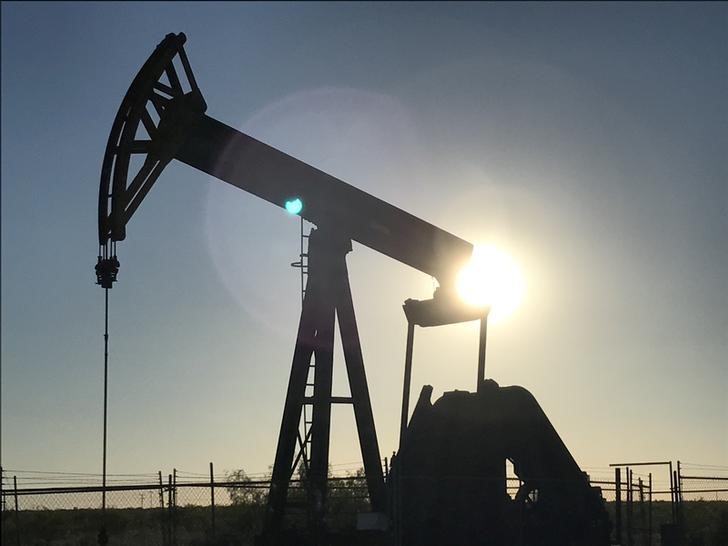By Aaron Sheldrick
TOKYO (Reuters) - Oil prices largely held on to gains on Tuesday after posting the biggest rise in six weeks a day earlier, buoyed by moves by Saudi Arabia's crown prince to tighten his grip on power and rising tensions between the kingdom and Iran.
Brent crude futures (LCOc1) were up 5 cents at $64.32 (48.85 pounds) per barrel by 0750 GMT. On Monday, they closed 3.5 percent higher, also their biggest percentage gain in about six weeks.
U.S. West Texas Intermediate (WTI) crude (CLc1) was down just 3 cents at $57.32 a barrel. The contract surged 3 percent on Monday, the biggest percentage gain since late September. Both benchmarks hit their highest since mid-2015 during the session.
Saudi Crown Prince Mohammed bin Salman moved to shore up his power base with the arrest of royals, ministers and investors, including billionaire Alwaleed bin Talal and the powerful head of the National Guard, Prince Miteb bin Abdullah.
The arrests, which an official described as part of "phase one" of the crackdown, are the latest in a series of dramatic steps by Prince Mohammed to tighten his grip at home.
Tensions between Saudi Arabia and Iran also rose further. The Saudi Arabia-led military coalition fighting against the Houthi movement in Yemen said on Monday it was closing all Yemeni air, sea and land crossings.
The move came after a missile was fired toward Riyadh on Saturday. Saudi Arabia and its Gulf allies have said they see Iran as responsible for the Yemen conflict and, on Monday Saudi Foreign Minister Adel al-Jubeir said his country reserves the right to respond to Iran's "hostile actions".
Iranian Foreign Minister Mohammad Javad Zarif said Saudi Arabia was blaming Tehran for the consequences of its own "wars of aggression".
"A potential conflict could limit significant supply out of the region," Shane Chanel, equities and derivatives adviser at ASR Wealth Advisers, said in an email. "We see WTI above $60 and may even see Brent above $70 by the end of the year."
Despite the moves by the Saudi heir, analysts said they do not see Saudi Arabia, the world's largest oil exporter, changing its policy of boosting crude prices for now.
Saudi Energy Minister Khalid al-Falih said that while there is "satisfaction" with a production-cutting deal between the Organization of the Petroleum Exporting Countries and other producers led by Russia, the "job is not done yet."
OPEC is expected to extend a cut of around 1.8 million barrels per day into the whole of 2018.
U.S. drillers cut eight oil rigs last week, the biggest reduction since May 2016, helping to support prices.
While supplies are tightening, analysts said demand remains strong.
Speculators increased their bets on gains in the price of Brent to a record high.
